How to Spot a Fake Rolex Milgauss
We discussed how to spot a fake Milgauss not too long ago, and last week we put our own advice to the test.
A Milgauss we were considering purchasing arrived at our showroom last week, only to be revealed as faux by our authentication process. At first glance, this Milgauss was a near perfect fake. In fact, only when we opened the imposter to verify its movement did we confirm our suspicions: This Milgauss was a knockoff – a good one – but a fake nonetheless.
At first glance, the fake’s dial appears very similar to the authentic Rolex Milgauss’s. The colors are right, the type on the dial is legitimate, the lightning bolt second hand is a good replica and only the luminescence on the dials gives it away.
Once it’s opened though, the fake Milgauss’s movement gives it away – it’s a completely different movement than the real Rolex Milgauss.
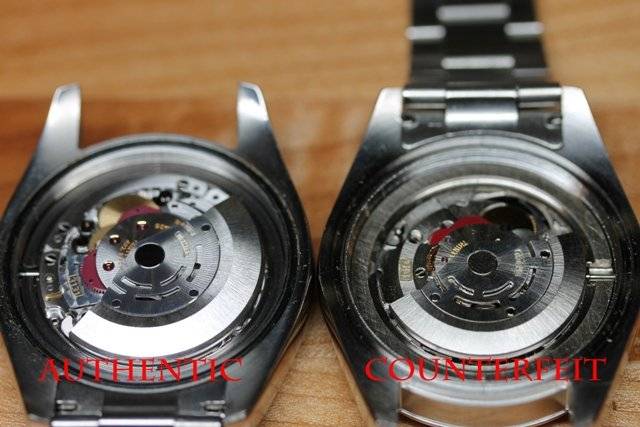 Here, you can see that the balance shock absorber is a different shape from authentic’s, . It’s also missing its gold surround.
Here, you can see that the balance shock absorber is a different shape from authentic’s, . It’s also missing its gold surround.
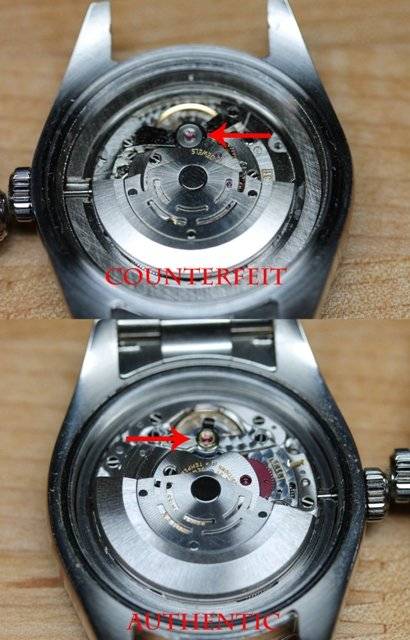 Here, you can see the difference between the hairsprings. The authentic Rolex’s, on the left, is a deep blue, and is more pronounced than the paler & smaller hairspring in the fake.
Here, you can see the difference between the hairsprings. The authentic Rolex’s, on the left, is a deep blue, and is more pronounced than the paler & smaller hairspring in the fake.
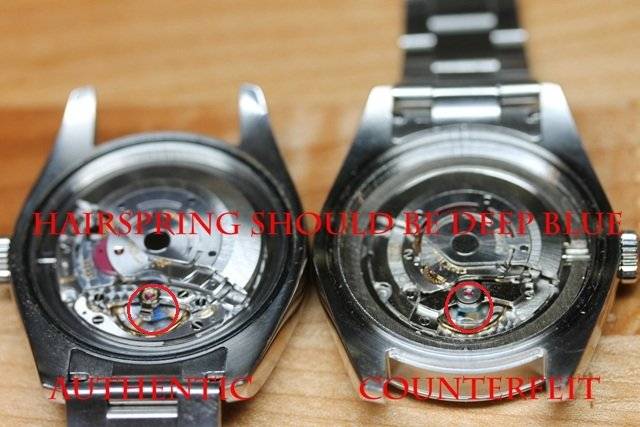 Additionally, the reversing wheel, red, is in an entirely different location on the fake.
Additionally, the reversing wheel, red, is in an entirely different location on the fake.
 Again, the fake Milgauss misplaces its components by centering the movement number. As you can see, the genuine Rolex Milgauss’s movement number is slightly off center to the right.
Again, the fake Milgauss misplaces its components by centering the movement number. As you can see, the genuine Rolex Milgauss’s movement number is slightly off center to the right.
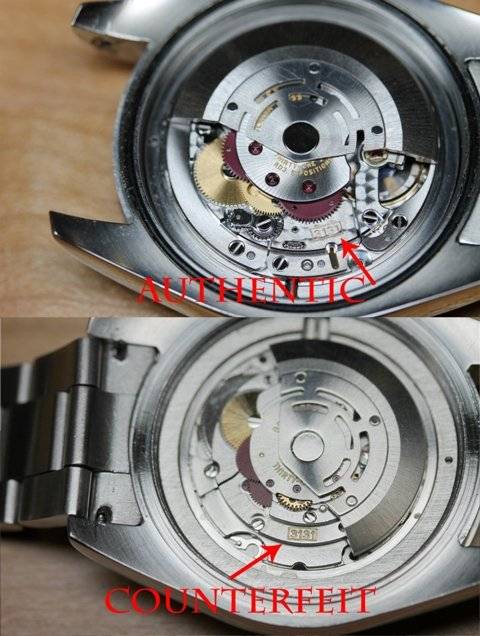 Even the case back components are used to discern the authentic from the faux. A Rolex Milgauss case comes in two parts, with dual chambers that protect it from magnetic fields, which is one of the Milgauss’s defining features.
Even the case back components are used to discern the authentic from the faux. A Rolex Milgauss case comes in two parts, with dual chambers that protect it from magnetic fields, which is one of the Milgauss’s defining features.
Here, you can see that the outer case back on the fake has the wrong shape and is slightly smaller in diameter (this may be owed to the entirely different movement). But the telltale sign here is the imperfect lettering and spacing of the “Rolex Milgauss” & crown on the perimeter.
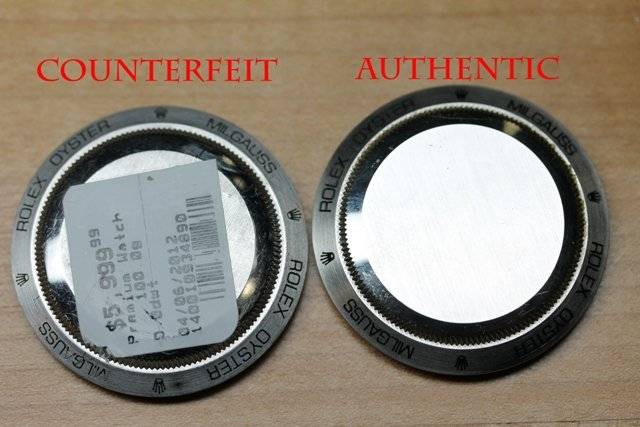 On the inside of the outer case, you can see that the type on the fake is very nearly perfect, but the genuine Rolex’s actually is perfect. The grain of the steel & the too-light engraving are other giveaways.
On the inside of the outer case, you can see that the type on the fake is very nearly perfect, but the genuine Rolex’s actually is perfect. The grain of the steel & the too-light engraving are other giveaways.
On the inside, note the different shape of the inner parts. The angles of the concentric circles are steeper on the fake, and the steel is rougher in its grain.
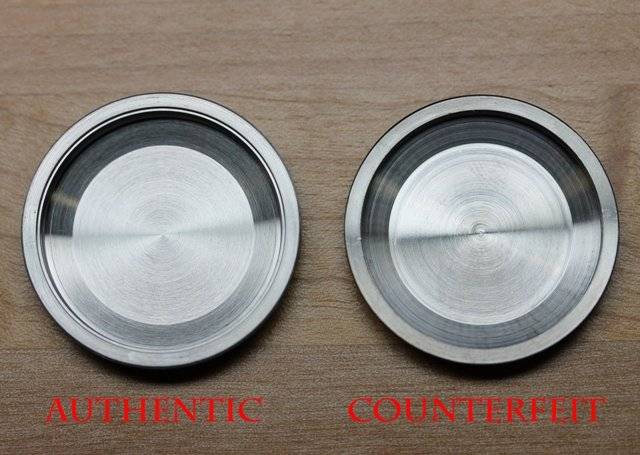 You can also see the difference in the angles when you view the inner case back’s reverse side; additionally, the size appears to be slightly off, and the engraving on the “B” is not as sharp.
You can also see the difference in the angles when you view the inner case back’s reverse side; additionally, the size appears to be slightly off, and the engraving on the “B” is not as sharp.
As you can see, it’s very difficult to separate a good fake from the genuine article. Fortunately, Rolex movements continue to be superior to anything that can be produced by counterfeiters. Without opening the case back to examine the movements, it would be nearly impossible to spot this fake (its only obvious outer flaw is the mottled luminescence that fakers still can’t seem to get right). When in doubt- always authenticate a Rolex by having an expert check out the movement!

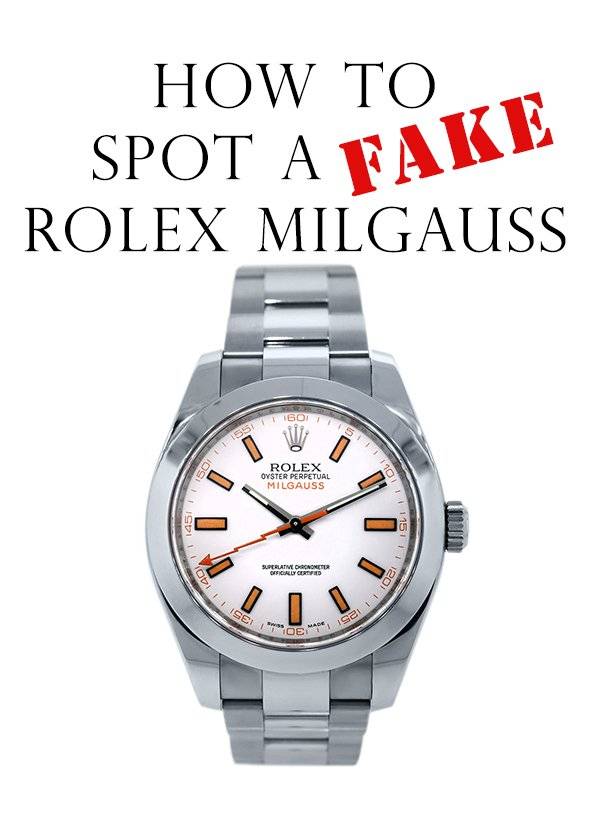
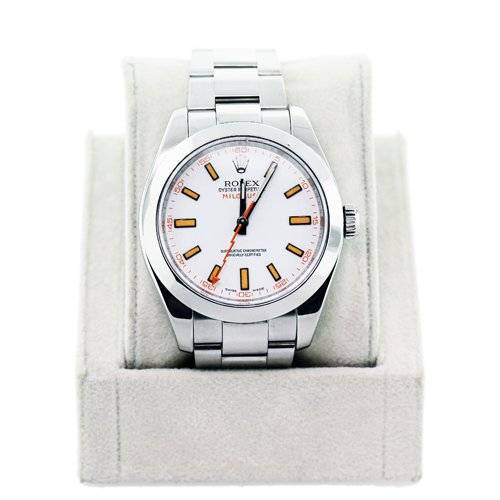
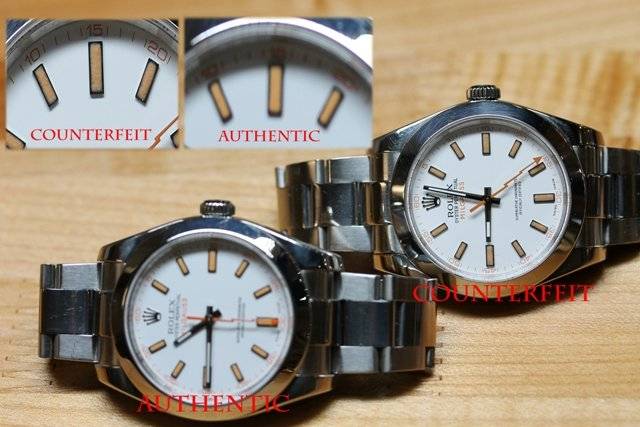
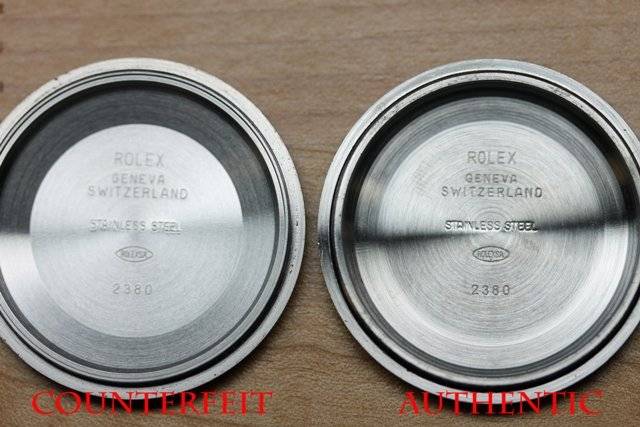
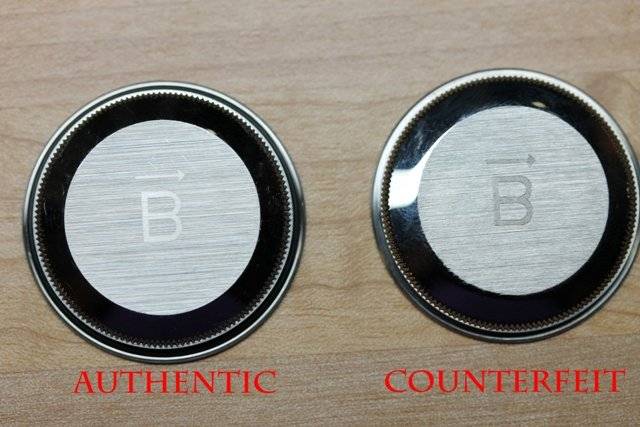

Comments are closed.